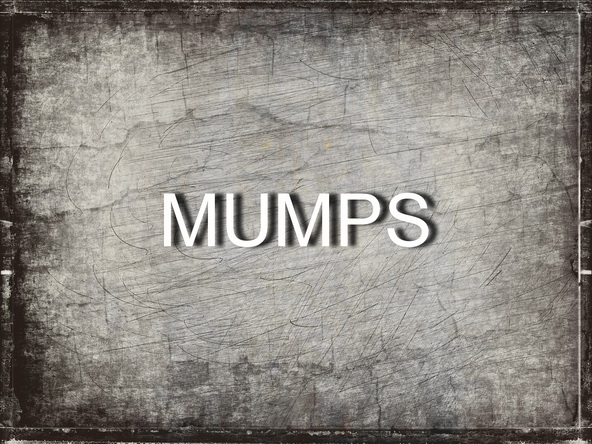Mumps: Symptoms and Treatment
Mumps is a contagious disease caused by a virus that passes from one person to another through saliva, nasal secretions, and close personal contact that used to be common in children before the introduction of the MMR vaccine.
According to healthline.com, the condition primarily affects the salivary glands, also called the parotid glands and these glands are responsible for producing saliva.
There are three sets of salivary glands on each side of your face, located behind and below your ears and the hallmark symptom of mumps is swelling of the salivary glands.
Symptoms
The symptoms usually appear within two weeks of exposure to the virus. Flu-like symptoms may be the first to appear, including:
- fatigue
- body aches
- headache
- loss of appetite
- low-grade fever
Treatment
Because mumps is a virus, it doesn’t respond to antibiotics or other medications. However, you can treat the symptoms to make yourself more comfortable while you’re sick. These include:
- Rest when you feel weak or tired.
- Take over-the-counter pain relievers, such as acetaminophen and ibuprofen, to bring down your fever.
- Soothe swollen glands by applying ice packs.
- Drink plenty of fluids to avoid dehydration due to fever.
- Eat a soft diet of soup, yogurt, and other foods that aren’t hard to chew (chewing may be painful when your glands are swollen).
- Avoid acidic foods and beverages that may cause more pain in your salivary glands.
Most people who get mumps can’t contract the disease a second time. Having the virus once protects you against becoming infected again.
Prevention
Vaccination can prevent mumps. Most infants and children receive a vaccine for measles, mumps, and rubella (MMR) at the same time. The first MMR shot is generally given between the ages of 12 and 15 months at a routine well-child visit. A second vaccination is necessary for school-aged children between 4 and 6 years old. With two doses, the mumps vaccine is approximately 88 percent effective. The rate of effectiveness of only one dose is about 78 percent.
However, people who have compromised immune systems, are allergic to gelatin or neomycin, or are pregnant, shouldn’t receive the MMR vaccine.
Source: https://www.healthline.com
HealthEdge
EXCLUSIVE

Pet Vaccination, Public Awareness And Surveillance Key Towards Rabies-free Southeast Asia - Experts
KUCHING, Dec 11 (Bernama) -- The goal of making Southeast Asia free from human rabies can be achieved through a total understanding of the disease, how it can be prevented and responsible pet ownership among communities, say experts.
read more ››IN FOCUS

TAVI KAEDAH BAIK PULIH INJAP JANTUNG TANPA PEMBEDAHAN




